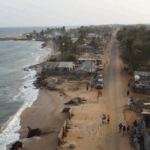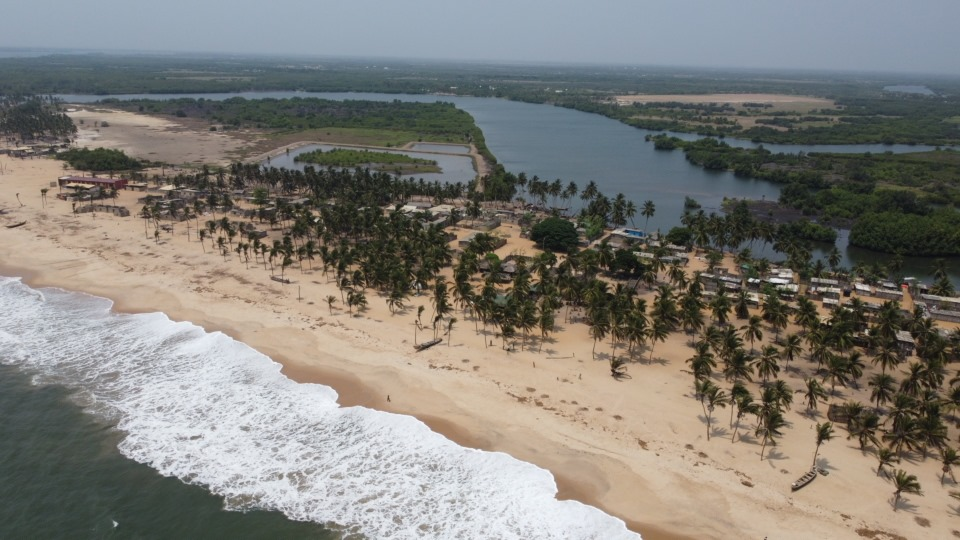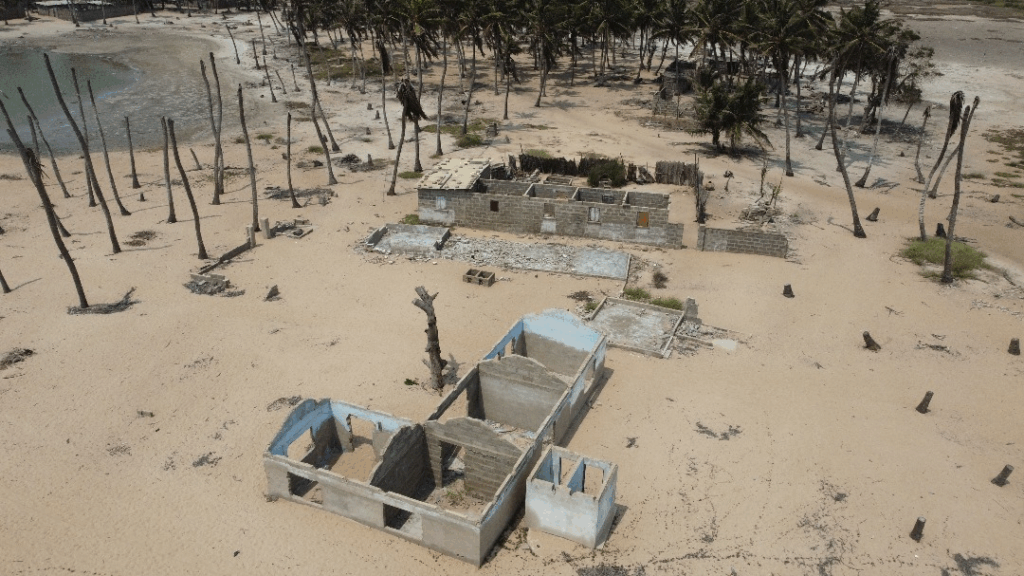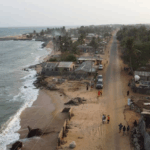
The water rose silently at first, creeping under doors and soaking beds. Then it surged drowning homes, schools, and farmlands from Mepe to Keta, from Anloga to Ketu South.
Today, for thousands of women and children, the floodwaters have taken away not just their houses, but their sense of safety.
The flooding was fuelled by a combination of heavy rains and the spillage of the Akosombo Dam between September 15 and October 30, 2023. The Volta River Authority (VRA) was forced to release water to protect the integrity of the dam, triggering a humanitarian disaster that displaced nearly 38,000 people.
In a cramped classroom in Agbledomi, Ablavi, a mother of four, shares the space with 27 other displaced persons. Her newborn survived a nighttime flood surge only because she clutched him tightly above the water.
“I screamed until my voice finished,” she told JoyNews. “Every night, I fear it will happen again.”

In Kedzi, 17-year-old Edem lives with another type of pain. His WASSCE exams were interrupted when water burst into his classroom.
“I haven’t recovered,” he admits. “I don’t know if I will write again.”
The shelters are overcrowded, wet, and unsafe. Mothers cook on small fires under leaking roofs. Children sleep on cold floors. Privacy is a luxury no one here can afford.
As floodwaters stagnate, a new threat is rising: Malaria cases are increasing, Diarrhoeal diseases are spreading, Cholera fears loom, latrines have collapsed, and open defecation is widespread.
Girls are missing school—some permanently. Mothers trade their last bowls of gari for candles and sachets of clean water.
While NADMO, humanitarian organizations, and local authorities are providing support, the scale of the crisis exposes glaring gaps in disaster preparedness.
“How long will we live like this?” a teacher asked. “How do we rebuild when we have lost everything?”
Farms worth millions of cedis are gone. Businesses destroyed. Boats and nets washed away. The economic scars may last for years.

Experts insist that what is unfolding is more than flooding, it is a humanitarian emergency requiring coordinated action.
Immediate needs: Emergency food and water, Mobile health services, Sanitary materials, Temporary shelter.
Long-term needs: Proper drainage systems, Floodplain zoning, Women-centred emergency shelters.
Women and children remain the most vulnerable, and the most forgotten. Their recovery must be at the centre of every intervention.
*****
This article is written as part of a collaborative project between JoyNews, CDKN Ghana, and the Centre for Climate Change and Sustainability at the University of Ghana, with funding from the CLARE R4I Opportunities Fund.
- President Commissions 36.5 Million Dollars Hospital In The Tain District
- You Will Not Go Free For Killing An Hard Working MP – Akufo-Addo To MP’s Killer
- I Will Lead You To Victory – Ato Forson Assures NDC Supporters
Visit Our Social Media for More



